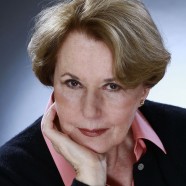
In the late ‘50’s to mid-60’s, Cambridge MA was the epicenter of the folk music renaissance. Compelling beyond words, like the most addictive drug you ever tried. The music, the freedom, the life. Joan Baez standing barefoot at Club 47 Mt. Auburn, with her silver voice and impeccable finger-picking. Bob Dylan, up from The Village to sing with Joan. Jim Kweskin’s Jug Band onstage with Maria Muldaur singing the blues. My boyfriend Eric Weissberg coming up from the city with his banjo to sit in with visiting bluegrass bands. For those who remember the players, they were all there: Eric Von Schmidt, Dave Von Ronk, Tom Rush, Dick and Mimi Farina, Judy Collins, Bill Keith, the Charles River Valley Boys, Jim Rooney, and on and on. We were all crashing on sofas and floors, staying up all night, singing, playing, drinking cheap Chianti, smoking pot, casual sex.
There is an iconic photo of Owen DeLong, my dear friend Jane’s ex- late-husband, that encapsulated the era – Owen, in the fullness of his young adulthood, suspended in midair, part-way between a diving board and the water, with a long-stemmed rose in his teeth and no safety net. That was all of us - beautiful, indestructible, frozen in time, wild with anticipation of the next amazing adventure. There had to be a way for me to live in Cambridge after I graduated. I was not, I repeat NOT, going back to Brooklyn to live with my parents.
Senior year of college I also had met Steve Chrystie, L.A. surfer-dude, Harvard Law student, smart, gorgeous, and arrogant, not necessarily in that order. Steve had another year to go at the Law School – yet another reason to stay up in the area to see what might evolve. So I applied to the New England Conservatory of Music, in Boston, for a Master’s in Musicology. I chose Musicology because it was the only division that would accept me. My hands-on musical skills were far from good enough to major in an instrument and my voice – forget it. My plan – if there was one – was to teach music history at the college level. To pay for tuition and living expenses, I worked in the Dean’s office at the Conservatory, taught English literature to undergraduates, tutored remedial English for those who couldn’t put a subject and predicate together without Gorilla Glue, and worked as a folk singer in local coffee houses.
I couldn’t afford my own apartment; I needed a roommate. Jane suggested I ask Sarah Kinne, the year ahead of us at Wellesley, if she wanted to rent an apartment with me, as she had heard that Sarah was looking for a share. “But why, Jane?” I queried. “I wasn’t friends with her, even when she was in our dorm.” “You shouldn’t choose a good friend as a roommate, that would be too emotionally combustible, it should be more like a business arrangement” she countered and sounded so authoritative that I buckled. I also couldn’t think of an alternative, and time was getting short. Sarah and I found a two-bedroom in Cambridge, signed a lease and moved in.
Sarah was in the Ph.D. Psychology program at Harvard, and her faculty advisor was Tim Leary. Yes, THAT Tim Leary. A couple of months into our year together, Sarah told me that Tim wanted to use our apartment for a “consciousness-expanding day.” It sounded at the least, interesting, yet another “try it on for size” event in a series of mind-blowing experiences, so I countered that if he wanted to use our apartment, he should include me in the festivities. I had to be cleared by the Harvard Health Center in order to participate and had to be either a college graduate or over 21. I was both, I was cleared, and I was in.
Why, you might ask, would I agree to do something like that? I was into total rebellion mode from my parents and family, who offered homilies like “It’s just as easy to marry a rich man as a poor one” asking what my plan was and when was I moving back to Brooklyn. My grandmother taught me to curtsy to her friends, for Chrissakes. I was an only child, and there was far too much scrutiny and unsolicited advice as it was. I wanted to get out from under in as dramatic a way as possible, and this was one of a number of life choices in that category that I made – running away from, as vs. running towards. There was virtually no experience I wasn’t up for, or at least, ready to consider. “Dare me”, I thought, “and watch me go.”
Back to Cambridge: Tim was a lecturer in clinical psychology at Harvard, as was his friend Dick Alpert. They both came over to our place bearing tidings of new psychic vistas to be explored, plus four doses of psilocybin. There were a couple of Sarah’s Ph.D.- program friends along for this ride; Tim and Dick were supposedly providing oversight. We ingested our pills and waited. For the next hour, nothing happened. And then, it was like a movie that changed from black & white to technicolor. Everything glowed, everything was moving. Someone put on Brahms’ Symphony in C Minor, and it was as if I WAS the music.
My body stretched with the augmented chords and snapped back with the tonic chord resolutions. I lay on the floor and watched shapes and colors move across the ceiling. I was convinced that I had learned The Secret of the Universe; I should have written it down because of course I didn’t remember it. After a while, I looked into my bedroom and connected with a great sadness at seeing an empty chair there. Tim said I wept inconsolably for 30 minutes. I was on sensory overload, with no idea when or if this journey would end. There were fun parts, like eating and drinking the most delicious food I’d ever tasted, and drinking the wettest water in the world. We all laughed uncontrollably about nothing. There was a scary, paranoid episode where I contemplated going out of the apartment but was convinced that if I did, there were bad people waiting outside who would stab me to death. I thought “What a waste of my parents’ money.” I looked in the mirror, and saw lines and wrinkles etched into my face. I became an old woman, in an instant.
A psychedelic day lasts at least eight hours, by which time everyone was limp with exhaustion. I don’t recall Tim and Dick staying until we “came down”. So much for responsible oversight. Luckily for me, I didn’t have any lasting repercussions from this trip and went on with life. I did try psychedelics a few more times, but life without being high was fascinating enough without chemical enhancements.
Within a year, Leary and Alpert were fired from Harvard – Leary for leaving Cambridge and his classes without permission, and Alpert for giving psilocybin to an undergrad. Each went on to his own version of fame in the years to come. Tim Leary was noted for, among many other things, his exhortation to “Turn on, tune in a drop out.” Dick Alpert morphed into Baba Ram Dass who wrote the seminal book “Be Here Now”, which helped popularize Eastern spirituality and yoga. Sarah and I parted company at the end of our lease. She obtained her Ph.D. in psychology, practiced for a number of years and then, I heard, joined a bisexual commune. My dear friend Jane Mansbridge went on to get her Ph.D. in Political Science at Harvard, secured a tenured professorship there, and became the president of the American Political Science Association. Her ex-husband Owen dropped out of the Harvard Ph.D. program, joined the Fort Hill Commune, and in later middle age, committed suicide. Jim Rooney was a director of the Newport Folk Festival and went on to become a music producer in Nashville.
Steve Chrystie graduated from the Law School, returning to L.A. to join his friend’s father’s law practice. He explained that although he wasn’t ready to settle down, I could come out to California to “see how things went” – a rather lukewarm invitation that I declined. I did, however, fly out to see him once more, but by that time he was living with a stewardess whom he subsequently married – and later divorced. I never saw him again. Many years later, I looked him up on the internet and found that he had died in 2006.
As for me, I found two roommates for the following year, got my Master’s in Musicology after writing a thesis on Stravinsky’s Neoclassic Period, and never used any of it. What to do next? One of my roommates, Susie Campbell, thought it would be a great idea to go to Greece to meet our friend Jim Rooney, Cambridge folk singer who was at The American School in Athens at the time. Sounded like a plan, so off we sailed. A month later, after travelling to Istanbul and back with Jim, we were running out of money, so we hopped a freighter from Piraeus to Haifa, and went to work on a kibbutz. I stayed there for a year before working my way back – to Brooklyn, but not for long. Susie stayed, and although I never saw her again, I heard she had moved back to Cambridge, dying in her mid-30’s of either a severe asthma attack or a drug overdose. No one seemed to know.
And what happened after that? That’s a whole other story.









